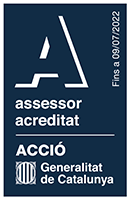A logo trademark license agreement is a legally binding document that governs the use of a company`s logo. In this agreement, a company allows another party to use its trademarked logo for specific purposes and under certain conditions. The agreement outlines the terms and conditions, such as the length of the license, the scope of use, royalties, and the owner`s rights.
Why Do Companies Need a Logo Trademark License Agreement?
Companies invest significant resources in developing their logos, which become an essential part of their brand identity. Trademarks protect logos and ensure that they are not copied or used without the owner`s permission. A logo trademark license agreement allows a company to control how its logo is used while generating additional revenue from the licensing fees.
What Should be Included in a Logo Trademark License Agreement?
1. Identification of Parties: The agreement should identify the parties involved, including the owner of the logo and the licensee.
2. Scope of Use: The agreement should clearly define how the logo can be used and what the licensee can and cannot do with the logo.
3. Rights and Obligations: The agreement should outline the owner`s rights and the licensee`s obligations, including payment terms, indemnification, and confidentiality.
4. Term and Termination: The agreement should specify the length of the license and the conditions under which it can be terminated.
5. Royalties: The agreement should state the amount of the licensing fees and how they will be calculated.
6. Representations and Warranties: The agreement should include representations and warranties by both parties, such as the licensee`s ability to use the logo and the owner`s right to license the logo.
7. Intellectual Property: The agreement should address ownership of the logo and the licensee`s use of any associated intellectual property.
Conclusion
A logo trademark license agreement is a valuable tool for companies that want to protect their logo while generating additional revenue from licensing fees. The agreement should be carefully drafted to ensure that both parties understand their rights and obligations. Consulting an experienced attorney can help ensure that the agreement is legally sound and protects the owner`s interests.








